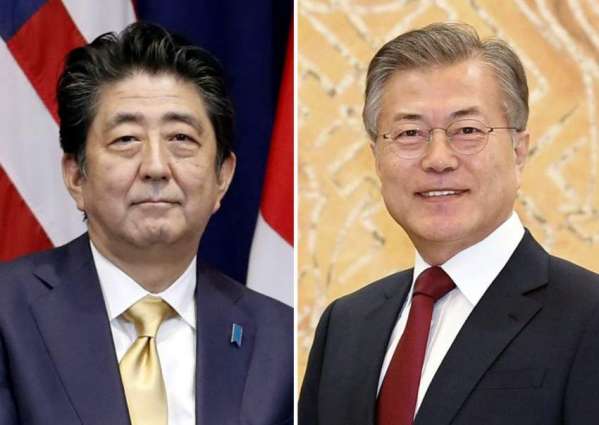US Assistant Secretary of State for the Bureau of East Asian and Pacific Affairs David Stilwell described the latest meeting between South Korean President Moon Jae-in and Japanese Prime Minister Shinzo Abe as an "encouraging" sign in terms of improving relations between the two Asian countries
MOSCOW (Pakistan Point News / Sputnik - 06th November, 2019) US Assistant Secretary of State for the Bureau of East Asian and Pacific Affairs David Stilwell described the latest meeting between South Korean President Moon Jae-in and Japanese Prime Minister Shinzo Abe as an "encouraging" sign in terms of improving relations between the two Asian countries.
On Monday, Moon and Abe had an 11-minute meeting on the sidelines of ASEAN Plus Three summit in Bangkok, during which they briefly discussed bilateral relations. This was the first meeting between the two leaders since September 2018, when they met on the sidelines of the 73rd session of the UN General Assembly in New York.
"Very encouraged while we were there to note that President Moon and Prime Minister Abe had the opportunity to talk and that's an encouraging sign as we watched the relationship improve," Stilwell said as quoted by South Korea's Yonhap news Agency.
The remarks came after Stiwell's meetings with South Korean Foreign Minister Kang Kyung-wha and Vice Foreign Minister Cho Sei-young in Seoul.
The US diplomat visited South Korea amid a spiraling political and trade row between Seoul and Tokyo, and the expiring bilateral military pact on intelligence sharing � the General Security of Military Information Agreement. In late August, Seoul announced its decision to withdraw from the pact, which South Korea and Japan signed in 2016 amid a series of North Korean missile tests. Washington has expressed its disappointment with South Korea's decision.
Tokyo and Seoul's trade row was triggered in July shortly after a South Korean court ruled that Japanese companies must pay reparations to former Korean workers who were forced into labor during World War II by the Japanese Empire.� Japan proceeded to introduce restrictions on exports of three high-tech materials � fluorinated polyimides, photoresist and hydrogen fluoride � that were vital for South Korean tech manufacturers. The following month, Tokyo removed Seoul from its list of trading partners with preferential rights.
Tokyo's official position regarding the reparations is that the bilateral 1965 Treaty on Basic Relations had fully resolved the matter.




